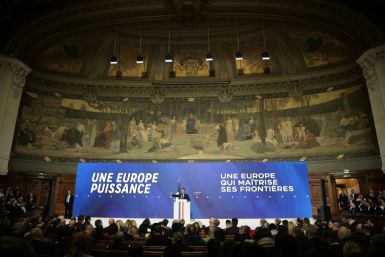Apple (AAPL) 500 Millionth iPhone Sold Ahead of Rumoured iPhone 6
Mark Rogowsky, contributor for Forbes, wrote that Apple Inc. (AAPL) sales of iPhones have reached a point where it is safe to assume that it has sold its 500 millionth iPhone.
Apple Inc. was able to cross this milestone in less than 7 years, much to the dismay of critics.
In 2007, criticism abound as there were only 717,000 iPhone units sold.
By Feb 2011, iPhone started crushing competition as it sold its 100 millionth iPhone.
The following years were landslide for Apple Inc. (AAPL) - 300 millionth iPhone by 2012; 400 millionth by 2013.
"The 300 millionth iPhone was sold before the calendar closed on 2012, though Apple's fiscal year had moved into 2013 as the company's financial reporting is based on a year ending in September. The big sale was very likely in December that year because while Apple finished with 47.8 million iPhones sold and a cumulative total of 318.8 million, holiday shopping likely makes that quarter "lumpier" than others. It's safe to say Apple had a happy Thanksgiving and a Merry Christmas as it took less than 10 months to sell 100 million iPhones," Mr Rogowsky wrote.
Having these as precedent, the September launch of the rumoured iPhone 6 could propel Apple Inc. (AAPL) to attain its 600 millionth iPhone by the end of its fiscal year.
Mr Rogowsky predicted that Apple's billionth iPhone will likely be sold by 2017.
Already on its way for its billionth sale, Apple senior software engineer Greg Christie remembered how the very first iPhone was 'conceived.'
In an interview with Wall Street, Mr Christie said that his team was in the process of working on a "software vision" for the handheld back in 2005. This was when Steve Jobs gave him the ultimatum of two weeks, up until then the project was going to be assigned to another team.
Pressed with that ultimatum, Mr Christie's team created a design which later became the iPhone OS, and eventually the iOS.
The team pioneered the "swipe to unlock" feature and other innovation that through time shaped the blueprint of all modern smartphone operating systems.
The team devoted months to a project which they secretly dubbed the "purple project." The team was lucky enough to have had brainstorm sessions with Mr Jobs himself.
Mr Christie said that Mr Jobs became intensely excited about the iPhone's software possibilities that he became passionately involved.
"His excitement for it was boundless," Mr Christie reminisced.






